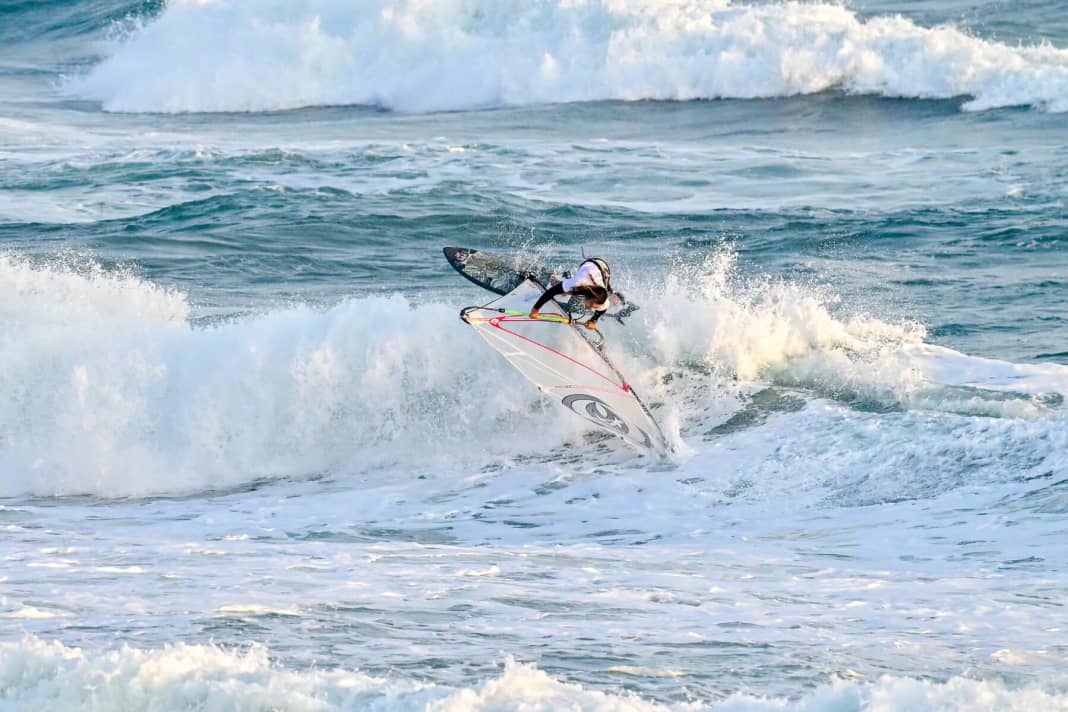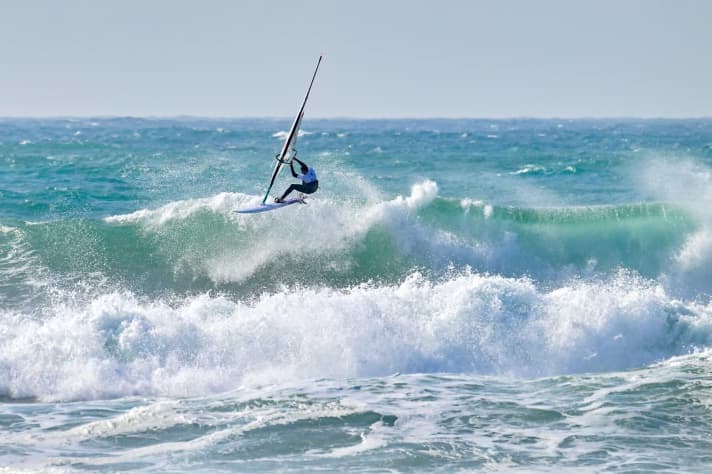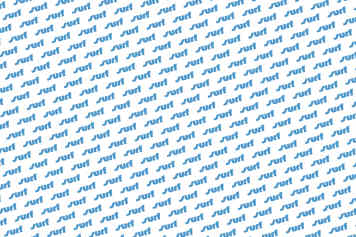





A perfect start to the PWA/IWT World Cup in Japan. After only the first two qualifying rounds could be completed yesterday in very onshore winds (HERE you can read the report from day 1), a complete "Dingle Elimination" could be driven on the second day of the event. Dingle elimination? In Japan, a mixture of a single and a double elimination was held. Four riders start in one heat, with the first two going straight through to the quarter-finals. The eliminated protagonists face each other directly in a so-called "Redemption Round" and can still secure their ticket to the quarter-finals if they win this round. The advantage of this system is that there is a limited opportunity to come back after an early exit, but this format does not take as long as a complete double elimination. The "Dingle" can therefore be particularly useful for events with a limited time window or when the wind forecast is borderline.
The heats were very busy, with big heads rolling early on
The conditions played into the hands of the Maui-experienced riders in particular, with the wind only blowing lightly at 15 to 20 knots. Despite this, solid sets with up to logo-high waves kept getting lost at the Omaesaki beach. The competition organisers decided that the two best wave rides would count towards the ranking and, with a long heat duration of up to 30 minutes, ensured that enough waves could be surfed during the heats to get a fair result.
In the men's field, the heats were extremely competitive right from the start, which is why big heads rolled early on. The recovered Philip Köster, who would certainly have wished for a better start on his comeback after a long injury break, was caught out in round one. However, Köster did not manage to collect enough high scores in the light wind and was eliminated by Robby Swift and Julian Flechet - although he was only 0.17 points short of progressing. Things didn't go according to plan in the "Redemption Round" either, when he lost out to Marc Paré. The second German starter in the group, Nick Spangenberg, also suffered an early exit.

Light winds from the right and solid waves - so it was no surprise that three Maui locals, Bernd Roediger, Morgan Noireaux and Marcilio Browne, faced each other in the final, complemented by Victor Fernandez, who is back at the start after his World Cup break this year and showed from the start that he has lost none of his all-round qualities.
World Champion Marcelio Brownie started the final with a high score (6.23 points) including a backside 360, followed by another wave with several turns (5.67 points) and led the final for over 20 minutes. As the wind weakened somewhat during this phase, the riders simply lacked the power in their sails for wave moves such as frontside 360s and goiters. Nevertheless, Victor Fernandez and Morgan Noireaux were able to stay within touching distance of Brownie with solid scores. When everything seemed to have been decided, Bernd Roediger conjured a final wave with 7.50 points out of his hat, including a solid goiter in the shore break. He thus snatched victory from Marcelio Brownie's grasp and crowned himself King of Omaesaki.
At this point, you will find external content that complements the article. You can display and hide it with a click.
In the women's final, Sarah Hauser, Maria Andres, Maria Morales Navarro and Motoko Sato were also familiar faces. Sato from Japan was able to capitalise on her home advantage and win the final by around 0.5 points ahead of Sarah Hauser. The waveriders will once again be competing for valuable World Cup points in Chile in April. If you want to watch the heats in full, you can find the complete livestream of the day here - including an enthusiastic Japanese commentator.
